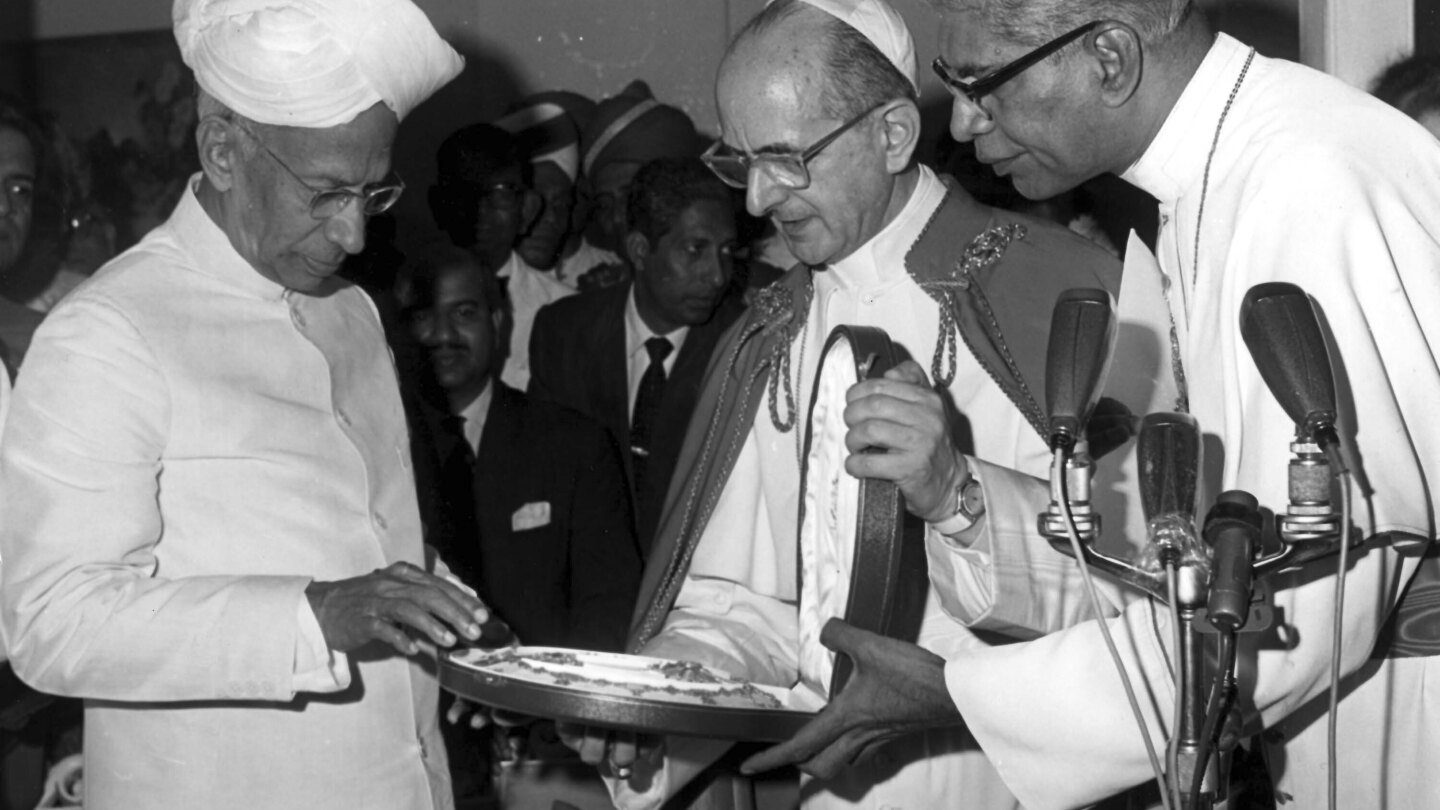BANGKOK, Thailand (AP) — Pope Francis’ visit to Southeast Asia, the longest trip in his papacy, is the latest in decades of regular papal visits to the Asia-Pacific region.
Papal travel is a thing of the modern era, starting with Pope Paul VI, who became the first pontiff to leave Italy in more than 150 years when he made his famous pilgrimage to the Holy Land in 1964, shortly after becoming pope.
His next visit was to India later that same year, marking the first time a pope had ever visited Asia. It was one of many firsts for Paul VI, who was also the first pope to fly in an airplane, the first to leave Europe and the first to visit countries on six continents, earning him the nickname “the Pilgrim Pope.”
Others by Paul VI, according to the Vatican, included a 1970 trip with stops in Australia, Hong Kong, Indonesia, Ceylon — today Sri Lanka — and the Philippines, where a would-be assassin unsuccessfully attempted to stab him at Manila airport.
His successor, Pope John Paul I, never got the chance to travel, dying just over a month after he ascended to the papacy.
But Pope John Paul II, who followed in 1978, picked up where Paul VI left off and by the time of his death in 2005, was the most traveled pope in history; a title he holds to this day.
He made his first of two visits to the Philippines, one of Asia’s most Catholic countries, in 1981 in a trip that also took him to Pakistan, Guam, Japan and Anchorage, Alaska, according to the Vatican.
Over the years he would visit Asia many times, including trips to South Korea, Bangladesh, India, Sri Lanka, East Timor, Indonesia, Singapore and Thailand.
In a notable moment from his 1986 trip to India, he was accompanied by Mother Teresa to her home for the poor in Kolkata, meeting and blessing its residents. Reports at the time said the pope was visibly moved by the visit, and Mother Teresa later called it “the happiest day of my life.”
John Paul II also visited Australia, New Zealand, and the Pacific island nations of Fiji, Papua New Guinea and the Solomon Islands.
His successor, Benedict XVI, became pope at an advanced age and did not travel as frequently or as far afield, but did visit Australia in 2008 for World Youth Day, according to the Vatican.
Francis, who took over from Benedict after he resigned in 2013 due to declining health, has already been to the Asia-Pacific region several times, with visits to countries including South Korea, Sri Lanka, the Philippines, Bangladesh, Thailand, Japan, Kazakhstan and Mongolia.
In his 2017 visit to Myanmar, also known as Burma, Francis famously met with Nobel Peace Prize winner Aung San Suu Ky i, the democratically-elected leader who was ousted in the military in 2021, which has given rise to today’s civil war.
This time his Sept. 2-13 trip takes him to Indonesia, Papua New Guinea, East Timor and Singapore.
Of interesting historical note: the last pope to have left Italy before Paul VI was Pius VII, though he did so involuntarily.
Captured by French forces in Rome in 1809, Pius VII had been captive for three years when the French emperor, Napoleon Bonaparte, ordered him moved near Paris in 1812. As Napoleon’s empire crumbled, he was released and returned to Rome in 1814.

